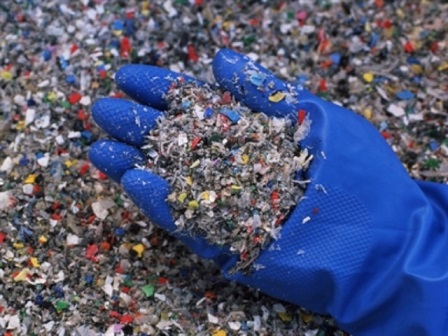Turning paper and plastic waste into biofuel

In partnership with the University of Sydney, start-up company Licella has developed Catalytic Hydrothermal Reactor (Cat-HTR) technology to convert waste biomass into a stable biocrude oil. The company has now become the subject of contracts with global investors that enable the reimagining of the pulp and paper industry as a biorefinery and the upgrading of end-of-life plastics into fuel blend-stocks.
Last week, Licella signed a $10 million joint venture contract with British company Renewable Chemical Technologies Limited (RCTL) to build the world’s first commercial hydrothermal waste upgrading plant. The aim of the partnership is for RCTL to use Cat-HTR technology to convert end-of-life plastics into high-quality oil, suitable for blending into standard hydrocarbon fuels.

Licella co-founder Professor Thomas Maschmeyer said the partnership will tackle the issue of what to do with end-of-life plastics — the remnants of mixed plastics with small amounts of paper and cardboard that are left over from more easily recyclable components. He noted, “Dealing with end-of-life plastics is challenging and expensive, as they vary considerably and have traditionally had to be sorted in order to be recycled effectively.”
Enabled by this funding, Licella will develop and test a recycling plant in Australia before shipping it to the UK. Planned to process 10,000–20,000 tonnes per annum, the first plant will be integrated into an existing facility, but it is envisioned that a series of plants will be developed across the UK using the company’s technology.
“This investment will allow for the deployment of our technological solution on a commercial scale — with up to 20,000 tonnes to be transformed from waste to product annually from next year just from the first plant alone,” said Licella Chairman Dr Len Humphreys.
One day later, Canada’s Canfor Pulp Products Inc (CPPI) revealed it had signed an agreement with Licella to form a joint venture. ‘Licella Pulp Joint Venture’ will investigate opportunities to integrate Cat-HTR into Canfor Pulp’s kraft and mechanical pulp mills to economically convert biomass, including wood residues from Canfor Pulp’s kraft pulping processes, into biocrude oil for next-generation biofuels and biochemicals.
The potential for converting sawdust and pulp and paper by-products into bio-oil was significant, as the waste is currently burnt for low-quality process heat. Professor Maschmeyer explained, “Only 30% or so of a tree becomes paper; the rest is waste. We use this waste to make a new product — biocrude oil from renewable, already aggregated waste.”
Canfor will invest funds sufficient for a full-scale commercial operation to turn this biomass waste into biocrude, which will go into existing petrochemical refinery streams to generate renewable fuels and/or chemicals. While the biocrude plants will initially be integrated with Canfor Pulp’s adjoining pulp and paper plants, the JV will eventually investigate offering this solution to third-party pulp mills.
“The Cat-HTR process is a strong technical fit for the kraft process,” said CPPI President Brett Robinson. “The opportunity to directly produce advanced biofuels from our existing streams could transition Canfor Pulp from being strictly a pulp and paper manufacturer to a bioenergy producer as well. The Licella technology has significant similarities to our existing processes, which makes this partnership a natural fit.”
REMONDIS expands into Western Qld
The Australian branch of the German multinational, which specialises in recycling, industrial...
NSW celebrates recycling triumph
Considerable progress has been made in the New South Wales recycling sector, with the state now...
Experts call for fashion waste overhaul
A new study has analysed what happens to donated textiles in a number of western cities,...









